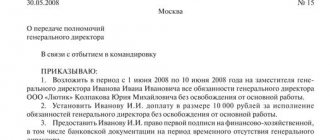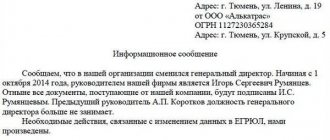Due to the fact that the management of educational organizations must be carried out by employees who have certain knowledge, have appropriate education and work experience, a certain standard has been developed at the federal level.
Currently, the provisions of this standard are mandatory for compliance not only by state educational organizations, but also by private ones.
Necessity and acceptance
Standards for educational leaders began to be adopted in Russia in 2013.
Initially, such documents were purely advisory in nature and their main function was to determine the criteria for selecting employees for management positions, as well as identifying their compliance.
Currently, the adopted and current standard solves the following issues:
- Determining possible categories of employees who may be considered as applicants for management positions.
- Identifying educational institutions managed by employees who do not meet the accepted standard, and taking measures to eliminate this deficiency.
- Determination of the main functions that an employee occupying a similar position must perform.
- Improving the work of all educational institutions existing within the Russian Federation.
- Contributing to the development of Russian education.
- Improving controllability in all existing educational institutions, from preschool to higher education.
- Increasing the rating of education in the Russian Federation by improving the process of training specialists.
Regulatory framework for 2020
According to the current legislative acts, the legal framework that serves as the basis for the development and establishment of standards for heads of educational organizations is the Labor Code of the Russian Federation. In particular, it is worth noting the following basic formulations:
- It is permissible to apply national standards to employees holding leadership positions in individual areas and organizations.
- The requirements and functions for each position reflected in the adopted standards should not contradict the requirements reflected in the qualification reference books.
- If there are certain restrictions in accordance with the Labor Code of the Russian Federation for the performance of labor duties in management positions, the developed standards cannot contain data on their assumption.
- If additional questions or ambiguities arise regarding the content of professional standards related to management positions, you must be guided by the data in the qualification reference books.
Job description of Deputy Director for HR
195.3 of the Labor Code of the Russian Federation, one or another professional standard is mandatory only if the need to comply with it is stated in a certain law. For example, the professional standard “Accountant” is mandatory, since it is required by the Accounting Law.
As for the directors of the company, neither the Civil Code of the Russian Federation nor the Laws on LLCs and JSCs contain provisions that would speak about the need for directors of companies to comply with professional standards.
Therefore, the document developed by the Ministry of Labor is of a recommendatory nature for the management of organizations. Each company has the right to independently decide whether to use it to describe the labor responsibilities of a particular director in its local regulations.
Contents and composition
The professional standard at the national level, which defines the basic requirements for a manager, has the following content:
- General data and information. This part reflects the name of the type of activity and the main purpose of management in this area. The code classification of positions according to OKZ and OKVED codes is also given.
- Section called “Functional map”. This reflects the general concepts of the main tasks performed by the manager, which are deciphered and reflected in more detail later in the text of the document.
- Detailed description of each function. In this part, each of the previously reflected tasks facing the manager and the functions he performs is disclosed separately.
- Data on organizations that participated in the development of the professional standard before it was adopted by order of the Ministry of Labor.
Documents for download (free)
- Professional standard of the head of an educational organization
Professional standard of the head of an educational organization
The professional standard of the head of an educational organization is a document that describes the level of qualifications, responsibilities and job functions assigned to this employee. Let's figure out what to expect from the adoption and implementation of this professional standard.
Why do we need a professional standard for the head of an educational organization?
Since 2013, the gradual introduction of professional standards began in Russia. Initially, they were just recommendations, but since the summer of 2020, gradually, as they are approved and put into effect, they become mandatory standards not only for public, but also for private organizations.
The introduction of professional standards is due to the fact that the previously existing norms of ETKS, EKS and other acts in this area are largely outdated and do not always reflect the actual situation. As a result, problems often arise due to the fact that important positions are occupied by people who do not match them either in terms of education or skills.
There are areas where this situation is absolutely intolerable, and one of these areas is education.
The first professional standards for teaching staff were adopted back in 2013, and their adoption is still ongoing. One of the documents, the draft of which has been in development for a long time and should soon be adopted, is the professional standard of the head (director, head, rector, etc.) of an educational organization.
This professional standard will contain the qualification requirements for the employee holding this position, as well as a brief description of the labor functions assigned to him.
The adopted professional standard is expected to achieve the following goals:
- Improve the management of educational organizations by increasing the qualifications of their leaders.
- To achieve the development of Russian education at all levels - from preschool to higher professional.
- Increase controllability in educational institutions and organizations.
When will the professional standard for the head of an educational organization be adopted?
Although professional standards become mandatory from July 1, 2016, this does not yet apply to the professional standard of the head of an educational organization .
The draft document, developed back in 2013, has not yet been adopted and does not have mandatory status, although initially it, like all others related to educators, was planned to be put into effect in 2020.
However, after consultation with organizations of educators, it was decided to first test the standards in the actual practice of schools and other educational institutions.
This delay is mainly due to the fact that educational activities, as well as its management, are very different from the business processes occurring in ordinary organizations.
In addition, the competence of the heads of educational organizations varies greatly depending on the type of such organization: it is difficult to compare the head of a municipal kindergarten and the rector of a state university, although both of them lead an educational institution.
Taking into account the information that was obtained during testing, discussions and studying the opinions of practicing teachers, the professional standard was finalized. Its final adoption by order of the Ministry of Labor of the Russian Federation is expected in the second half of 2020.
The entry into force of the document as mandatory should most likely be expected from January 2020, along with other professional standards developed for workers in the teaching field.
What does the draft professional standard for the head of an educational organization contain?
The version of the professional standard for the head of an educational organization , which is now being prepared for adoption, has a standard structure. Like other professional standards, it was developed according to the template established by Order of the Ministry of Labor of Russia dated April 12, 2013 No. 147n. According to this order, each professional standard must consist of the following parts:
- General information. Here the name of the type of professional activity, its main purpose and classification according to OKZ and OKVED codes are written down.
- Functional map. Here we describe the main groups of generalized functions - those that combine several more specific ones.
- Characteristics of functions. In this part, the content of the previous section is described in detail for each function included in the generalized ones.
- Information about the organizations that took part in the development of the professional standard until it was approved by order of the Ministry of Labor of the Russian Federation.
Now let's look at what each of these parts will contain.
General information about the position
Section I of the standard contains both the official name of the position (Head of an educational organization) and the goals of this type of professional activity. The goals vary depending on the level of qualification, but one thing is common - the development and improvement of the efficiency of the organization, as well as improving the quality of educational services that are provided there.
For this section, managers are classified into the following types of economic activities in OKVED coding:
- 85.11 - preschool education;
- 85.12 - initial general;
- 85.13 - basic general;
- 85.14 - average general;
- 85.21 - secondary vocational;
- 85.22.1 - bachelor's degree;
- 85.22.2 - specialty;
- 85.22.3 - master's degree;
- 85.23 - preparation of higher qualifications;
- 85.30 - vocational training;
- 85.41 - additional education (both children and adults);
- 85.42 - additional vocational education.
Description of the functions included in the professional standard of the head of an educational organization
This section of the draft professional standard identifies the following general functions:
- Management of the organization.
- Organization development.
- Management of resources available to the organization.
- Representing the interests of the organization in contacts with authorities, local government and other organizations (including foreign ones, if we are talking about higher education).
- Management of research, analytical, design and educational and production activities.
Each of these generalized functions is decomposed into a number of simpler functions relating to specific types of educational organizations - from preschool institutions to universities. This does not apply only to the last group of functions, since research and development are not carried out in schools or kindergartens.
In addition, each function has its own qualification level - 7 (for preschool and general education) or 8 (for higher education).
Characteristics of individual labor functions
This section contains a description of the individual actions that a manager must perform to perform each individual function. They are characterized in sufficient detail: in the text of the project, the decoding of each of the functions described above takes at least 8 pages of typewritten text.
In addition, this section specifies the requirements for education and practical experience that a manager holding the corresponding position must have. For example, to perform such a function as direct management of an organization, the following is required:
- higher education;
- professional retraining;
- additional training during work in professional programs (at least once every 3 years);
- availability of an academic degree and title (for university rectors).
For a manager at any level, it is required that before being appointed to the position, he has worked in management or teaching positions for at least 3 years. In addition, there are some restrictions.
For example, persons deprived by law of the right to engage in teaching activities are not allowed to do this work.
Finally, this section establishes the official titles of educational leaders. According to the draft professional standard, 4 names are allowed for their positions:
The question of whether other names are acceptable has not yet been resolved. Apparently, these 4 cover the entire range of possible educational institutions, including various gymnasiums, colleges and academies.
It should also be noted that the professional standard directly states that certain functions outlined in it can be assigned to deputies, vice-rectors, heads of production practice, etc.
The assignment must occur in the manner of delegation of authority and be properly documented in the internal documents of the educational organization.
Moreover, in cases with deputies, the requirements regarding 3 years of leadership experience do not apply.
For persons to whom only economic functions are transferred, the requirement regarding teaching experience does not apply.
What will happen to managers who do not meet the professional standard?
In connection with the introduction of the new professional standard, the question arises: what to do if one of the managers does not meet the professional standard in terms of their qualifications? The current Labor Code of the Russian Federation does not provide for such grounds for dismissal as non-compliance with professional standards.
Moreover, the legislation on professional standards does not have retroactive effect.
From this we can conclude: if a manager who does not meet the standard already holds his position at the time the new document comes into force, there is no reason for his dismissal, so he will continue to hold his position. However, this does not mean that low-skilled managers can relax.
The fact is that there is such a possibility of dismissal as inadequacy of the position due to insufficient qualifications. To confirm/refute this fact, certification will be required - and this will be carried out precisely on the basis of the requirements enshrined in the professional standard.
That is why, in the time remaining before the implementation of the professional standard, heads of educational organizations should think about how to improve the level of their qualifications (if, of course, they want to retain their positions). Otherwise, they will need to prepare for either transfer to another position or dismissal.
Source: https://sparmoscow.ru/dolzhnostnaja-instrukcija/professionalnyj-standart-rukovoditelya-obrazovatelnoj-organizacii
Requirements for a manager and his legal status
The main requirements that a manager must meet are the following:
- Have a higher education.
- Complete professional training according to the approved schedule.
- Provide additional training according to federally approved professional training programs. The frequency of such actions is set to the minimum possible once every three years (at least).
- When managing a higher educational institution, have a certain academic degree and title.
- Have no restrictions on the right to engage in teaching activities.
- Have prior experience in positions related to teaching or management.
General information about the position
Depending on the organization in which the manager will perform his duties, the requirements for employees may differ slightly. In particular, different categories of institutions are distinguished separately:
- preschool education (kindergartens);
- primary, secondary and basic general, general secondary (schools);
- professional;
- Bachelor's and specialist's degrees;
- master's degree;
- training of highly qualified specialists;
- training prof. character;
- additional for citizens of any age.
The regulations on the professional standard also indicate the possible names of positions that managers can hold:
- rector;
- director;
- manager;
- boss.
Description and characteristics of functions
The standard includes a detailed description of the functions performed, which are prescribed to the manager depending on the particular institution in which he carries out his work activities. In general, the functions are reduced to the implementation by the general management of ensuring the development of the institution.
Also, the manager is vested with the authority to hire and fire, and has the right to sign and approve all internal documents and orders.
Also, the functions that are required from the head of the organization are:
- Carrying out direct management of the organization.
- Taking measures within one’s competence to ensure the development of an educational institution.
- Management of resources that are part of the institution.
- Representation of the interests of a specific institution, the head of which is an employee.
- If necessary, resolving issues with government officials, as well as institutions outside the Russian Federation, if we are talking about international cooperation.
- Carrying out functions to ensure the conduct of scientific research, with the exception of schools and kindergartens.
Professional standards for teachers in 2019
On December 20, 2020, an All-Russian conference was held at the Moscow State Psychological and Pedagogical University, where the introduction of a professional standard for teachers was discussed.
The discussion turned out to be quite heated, because the speakers proposed to radically change the format for assessing the professional activities of teachers and frightened teachers with the prospect of passing qualifying exams in 2020.
What has changed today, and what will the professional standards really be for preschool education employees, subject teachers and higher education teachers, starting in 2019? Let's figure it out.
The need to standardize parameters for assessing professional activity in various fields of work has been discussed since 2012. Then Vladimir Putin said in his speech that it was the introduction of uniform professional standards that would help the country strengthen the economy and raise the education system to a qualitatively new level.
The result of the first stage was the development of a strategy for introducing professional standards.
The Federal Labor Law introduced concepts such as “professional standard” and “employee qualifications,” and more than 300 projects were proposed for consideration by a special commission, including a draft of professional standards for teachers, which was supposed to come into force in 2020 year.
At the stage of consideration and open discussions, the unpreparedness of the domestic education system for such drastic changes became obvious. Experts decided that both teachers and organizations that will be responsible for checking the competence of teachers need a certain transition period that will allow them to easily and as painlessly adapt to new requirements.
Features of professional standards for teachers
In fact, the text of the new document describes in detail the characteristics of a modern teacher who is able to effectively teach his subject, instill practical skills in students, building interdisciplinary connections, taking into account the specifics of modern society and finding an individual approach to everyone, taking into account his intellectual and physical capabilities. For young, active and open to innovation specialists, the changes are clear and obvious, but teachers who are accustomed to working according to the standards of the “old” school did not like the ideas.
So, new professional standards for teachers, the introduction of which has been gradually postponed to 2020, will require teachers not only to have a higher education diploma, but also a number of competencies:
| № | Competence | Explanations |
| 1 | Deep knowledge of the subject. | Even if you teach math exclusively in grades 5 and 6, you should ideally be proficient in the entire school curriculum, including high school topics. |
| 2 | Basic knowledge in related fields and other subjects. | A necessary condition for conducting integrated lessons, which the new standard of education relies on. |
| 3 | Competencies in the field of IT technologies. | The use of multimedia presentations, videos, virtual environments and various computer programs in lessons has long become the norm and an integral part of the educational process. |
| 4 | Understanding the mental and physiological processes occurring in the body of children of different age groups. | This knowledge will help the teacher correctly structure the format of communication with students, find the optimal approach to each child and select material that children will perceive with interest and be able to understand. An important aspect for a modern teacher will be preparedness for the fact that there may be a student with special needs in the class. |
| 5 | Ability to work with parents and resolve conflict situations. | These are today the basic requirements in any field where there is direct contact with people. |
Teachers, striving to keep up with the times, have long taken all these points into account, without waiting for the state to write them down in a specific document. Those who stubbornly tried not to notice that the world around them is changing will have to adapt and learn to work in a new way, implementing a three-fold structure:
- effective training;
- cultivating a self-confident and decision-making personality;
- comprehensive development.
How will the new professional standard work?
The requirements are clear and not new for a long time, but how will they check who meets the high title of “teacher” and who does not? This question worries many educators today, because, despite the fact that 11th grade graduates in all regions take exams according to a single standard, the level of teaching in big cities and remote areas can differ significantly.
https://youtu.be/j3EdAwFzclY
In order to determine the level of an individual teacher, regardless of the region of his work, unified standards will be developed by 2020. And passing an exam will be added to the usual certification stages for teachers. NQT (National Qualification Test) will include questions from three areas:
- subject area (for each direction these will be different questions);
- pedagogy;
- psychology.
Projects of such tests have already been presented for employees of preschool institutions, primary school teachers and subject teachers, psychologists and defectologists, head teachers and directors, as well as other participants in the educational process.
Already from January 1, 2020, when the new professional standard comes into effect, teachers will receive a number of additional opportunities for personal and career growth, namely:
- an active teacher who produces high results will no longer have to wait 5 years for the next certification;
- Having proven a high level, any young specialist will be able to receive the appropriate category (it will be possible to “jump” immediately to 1 or from 2 to the highest);
- The prospect of career growth will be reflected in two new positions: senior and leading teacher.
Disadvantages of the upcoming reform
If everything is so rosy, then why are many teachers not enthusiastic about the innovation?
The new professional standards that the Government plans to introduce for teachers in the coming 2020 may raise the following difficult questions to the surface:
- What to do with teachers who cannot confirm their qualifications?
- Who will pay for additional training for those who “failed” the exams?
- Who will replace those who do not pass the certification or decide to leave education, afraid of new requirements?
Today, many questions remain.
Although the creators of the new standards assure that no mass layoffs will occur, and the opportunity to increase their level will be given to everyone who wants to, the uncertainty is frightening.
Only time will tell whether the new standard will be a breakthrough capable of raising the level of teaching and the prestige of the profession or a big headache for small schools, which even today have many personnel problems.
Source: https://2019-god.com/profstandarty-dlya-pedagogov-v-2019-godu
Consequences of non-compliance
Due to the fact that the adopted and currently valid standard is mandatory, it is necessary to note the consequences that may occur due to the non-compliance of an employee holding a managerial position with the norms and requirements reflected in the document:
- The Labor Code does not provide for the presence of non-compliance with the standard for their consideration as grounds for termination of the concluded employment contract.
- If the head of an institution does not have a sufficient level of qualifications acceptable for a particular organization, he may be dismissed. In order to keep a working manager in a position, it is possible to undergo a certain certification.
- If there are factors that indicate that the manager is not suitable for the position held, the employee may be offered a transfer to another position.
A master class within the framework of this professional standard is presented below.
ECSD - Deputy head (director, head, head) of an educational institution
About the transition to work in the context of the introduction of professional standards
On July 1, 2020, Federal Law No. 122-FZ of May 2, 2015 “On Amendments to the Labor Code of the Russian Federation and Articles 11 and 73 of the Federal Law “On Education in the Russian Federation” came into force.
Federal Law No. 122-FZ of May 2, 2015
Article 195.3 of the Labor Code of the Russian Federation establishes: “If this Code, other federal laws, and other regulatory legal acts of the Russian Federation establish requirements for the qualifications necessary for an employee to perform a certain job function, professional standards in terms of these requirements are mandatory for application by employers.”
The Ministry of Labor and Social Protection of the Russian Federation in its information letter dated February 10, 2016 “On the application of professional standards in the field of labor” explains the procedure for applying professional standards. Professional standards are applied by employers when forming personnel policies and in personnel management, when organizing training and certification of workers, developing job descriptions, tarifying work, assigning tariff categories to employees and establishing wage systems, taking into account the peculiarities of the organization of production, labor and management (including organization of staff training and intra-institutional methodological work).
Information from 10.02. 2020 “On the application of professional standards in the world of work”
Decree of the Government of the Russian Federation of June 27, 2020 No. 584 “On the specifics of the application of professional standards in terms of requirements mandatory for application by state extra-budgetary funds of the Russian Federation, state or municipal institutions, state or municipal unitary enterprises, as well as state corporations, state companies and economic companies, more than fifty percent of the shares (stakes) in the authorized capital of which are in state or municipal ownership” introduces a procedure for the gradual implementation of professional standards.
Decree of the Government of the Russian Federation of June 27, 2020 No. 584
Currently, by order of the Ministry of Labor of Russia dated September 8, 2015 No. 613n, the professional standard “Teacher of additional education for children and adults” has been approved, where possible job titles include “Teacher”. The standard is used by employers when forming personnel policies and in personnel management, when organizing training and certification of employees, concluding employment contracts, developing job descriptions and establishing remuneration systems from January 1, 2020.
Professional standard “Teacher of additional education for children and adults”
Order of the MBUDO "DSHI p. Dubinino" "On the creation and powers of the working group for the implementation of professional standards"
Order of the MBUDO "DSHI p. Dubinino" "On approval of the action plan for the transition to work in the context of the introduction of professional standards, provisions on certification for compliance with the professional standard "Teacher of additional education for children and adults", on approval of the composition of the certification commission"
Action plan for the transition to work in the context of the introduction of professional standards
Regulations on certification for compliance with the professional standard “Teacher of additional education for children and adults”
“Profstandard deputy director” - such a search query has often been entered into Internet search engines since July 2020. What this is connected with and what professional standards may apply to the position of deputy director, you will learn from our article.







